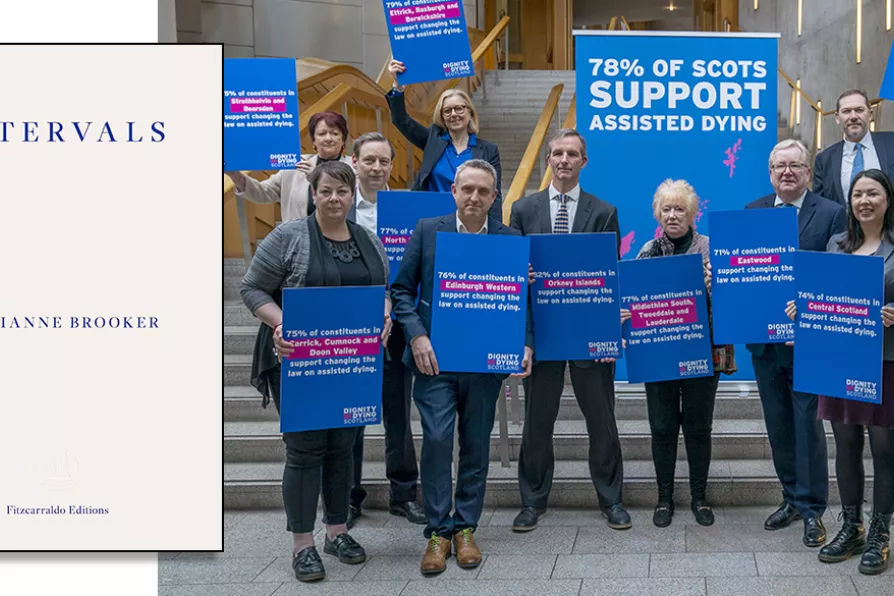TONY BURKE speaks to Gambian kora player SUNTOU SUSSO

 Scottish Liberal Democrat MSP Liam McArthur (centre, left), alongside other MSPs, after publishing his Assisted Dying for Terminally Ill Adults (Scotland) Bill, March 28, 2024
Scottish Liberal Democrat MSP Liam McArthur (centre, left), alongside other MSPs, after publishing his Assisted Dying for Terminally Ill Adults (Scotland) Bill, March 28, 2024
Intervals
Marianne Brooker, Fitzcarraldo Editions, £10.99
IN MY 2007 memoir Take Me Home (Granta, now out of print), I suggested that “care is a kind of siege, a war of attrition.” A large part of caring, I argued, consists of biding time, waiting for something to happen: “for the symptoms to change, for … the pill cycles to kick in or kick out,” for the sick person “to capitulate … without input from [their] … own volition.”
But what, I wonder now, is the end-game here? What if caring is sometimes simply, in essence, waiting for the sick person to die? What does it mean for care, the carer and the sick person when the intended goal is death? Can the carer still then be considered a “good carer”?
These are the questions posed by Marianne Brooker’s insightful and important new memoir, Intervals. For Brooker, “the practices of care go on and on,” to death and “even … after someone has died.”

KEN COCKBURN relishes the memoir of a translator, but wonders whether the autobiography underlying the impulse would make a better book

JOHN GREEN asks how can we take decisive action on population levels with a world leader who is a destructive ignoramus

GEOFF BOTTOMS, who has worked in a palliative care hospice for 11 years, argues the postcode lottery for proper end-of-life care must be ended to give the terminally ill choice and agency











